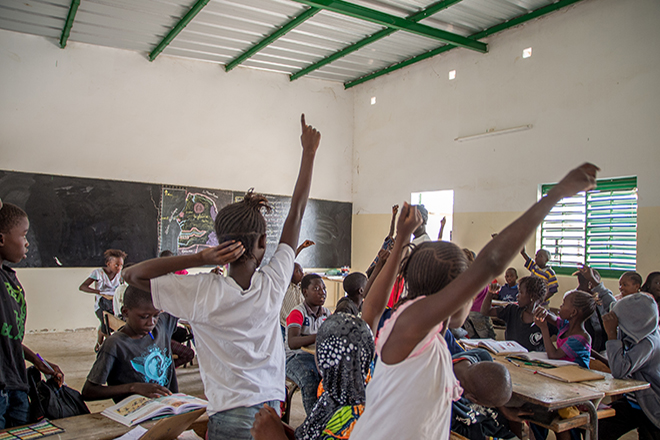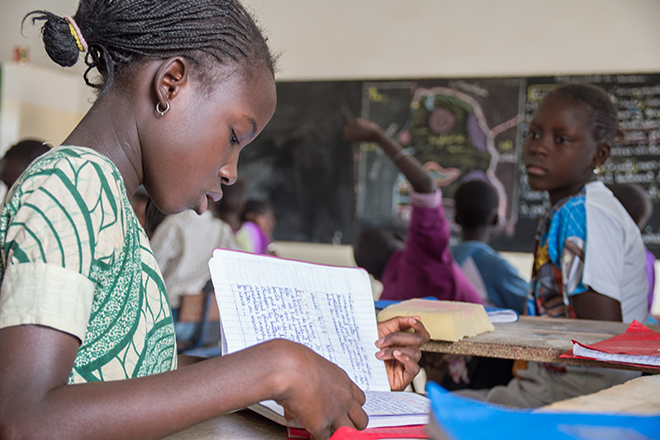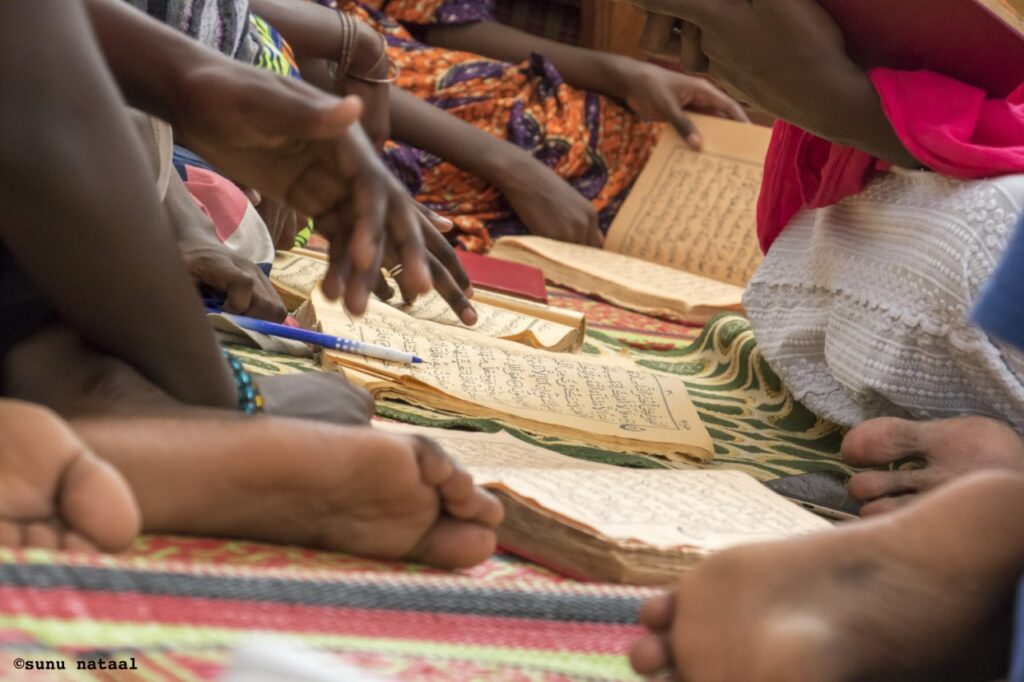Italian Development Cooperation recognizes and values education as an inalienable human right and as essential for human and institutional development in every country. Education is a priority for the Italian Agency for Development Cooperation (AICS), in line with the Community guidelines and goals for sustainable development presented in the 2030 Agenda.
Education is one of the most important tools for overcoming poverty, improving people’s lives and advancing sustainable development; it is a lifelong human right for everyone. The Agency is committed to providing education for everyone, even during situations of emergency, making financial aid available for programs of quality education even in difficult contexts (Leave No One Behind).
The Agency’s initiatives are focused on:
– guaranteeing the offer of inclusive, quality educational services, at every age level, from preschool to primary and secondary, up to university and beyond, for boys and girls, men and women;
– developing and testing innovative actions to strengthen, through education, the professional skills of the teachers, scholastic personnel and other operators engaged in the field;
– consolidating the sector of advanced training and university cooperation, fostering partnerships between Italian universities and similar institutions in the beneficiary countries.
In a view of supporting the right to an education, among the goals indicated by the Agency in the Three-year Programming and Orientation Document, AICS aims to ensure a quality, equal and inclusive education to everyone, and to encourage opportunities of permanent education for all (Goal 4 of the 2030 Agenda), with particular emphasis on targets 4.2, 4.4, 4.5, 4.7:
4.2 To guarantee by 2030 that every child experiences a good quality of life, and access to care and pre-school education to be ready for primary school.
4.4 To greatly increase by 2030 the number of young adults with specific technical and professional skills for employment in good jobs or for entrepreneurship.
4.5 To eliminate by 2030 any gender disparity in education and guarantee equal access to all levels of education and professional training of protected categories, including persons with disabilities, indigenous populations and children in situations of vulnerability.
4.7 To guarantee by 2030 that all students acquire the skills necessary to advance sustainable development, also through an education tending to develop a sustainable lifestyle, human rights and gender equality, encouraging a peaceful, non-violent culture, global citizenship, the appreciation of cultural diversity and contributing personally to the culture of sustainable development.
AICS works coherently with the goal of achieving its aims at the global level. To that end, they point to some of the important commitments undertaken by Italy at the international level:
- Global Education Summit: Financing Gpe 2021-2025 (Italy 20/25 – pledge of 25 million euro, i.e. 5 million annually for the next 5 years, of which half will go to soft targets, the education of girls and women in Africa)
Protecting and strengthening public financing of the partner countries in the education sector, increasing it to 20% of the total public expense.
- G7: “Girls’ education: the heart of Covid-19 recovery and unlocking Agenda 2030”
The Declaration indicates two new global objectives to be reached by 2026 in low- and medium-income countries:
– to enroll another 40 million girls and women in educational systems
– to ensure that 20 million more girls achieve literacy before the age of 10 or at the end of primary school.
Covid- 19
As a preventive measure against the spread of the viral infection caused by Sars-CoV-2, schools, universities and other educational institutions remained closed in many countries, affecting about 90% of the world’s scholastic population. The closures which, in some cases, continued for more than a year, resulted in a significant loss of learning, increased school leaving, but also problems connected with food insecurity, considering that, in some cases, the only meal that a child received every day was the school lunch.
That is why, now more than ever before, the commitment to cooperation in the education sector holds such a central role in support of the populations of the partner countries. Communities everywhere benefit if the children can attend school and if the young men and women can learn professions that will enable them in turn, to ensure a better future for themselves and succeeding generations.
International agreements and declarations:
-Education as a fundamental right, from the Universal Declaration of Human Rights, General Assembly of the United Nations, 1948;
-Convention on the Rights of Children – Crc, (U.N. Agreement on the rights of minors) November 20, 1989;
–World Declaration on Education for All and Framework for Action to Meet Basic Learning Needs, Jomtien, Thailand, March 5-9, 1990;
–UNESCO, Incheon Declaration for inclusive, high quality education without discrimination and for the permanent education of all by 2030. Changing Lives through Education, 2015 World Forum on Education, Incheon, Republic of Korea, May 19-22, 2015;
–U.N., Changing Our World, the 2030 Agenda for Sustainable Development, Resolution passed by the General Assembly on September 25, 2015;
–Agenda for Humanity, World Humanitarian Summit, February 2, 2016;
–World Declaration on Education for all, World Education Forum Dakar, 2000.
Useful documents and resources:
–From access to empowerment: UNESCO strategy for gender equality in and through education 2019-2025, UNESCO 2019;
–Global education monitoring report 2020_ Inclusion and education: all means all, UNESCO, 2020;
–Girls’ education: the heart of Covid-19 recovery and unlocking Agenda 2030;
–Partnership for Knowledge (Pfk), AICS, 2019-2022.


